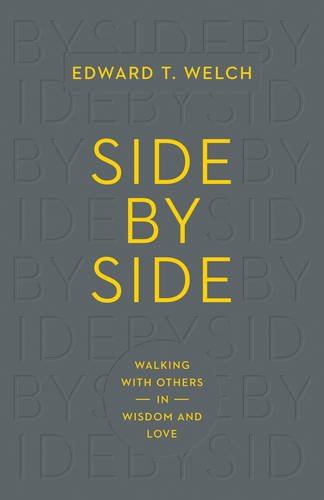A “Bonus” Book Summary from Books At a Glance
By Clay Werner
God uses ordinary lives, ordinary conversations, and extraordinary love to do most of the heavy lifting in his kingdom. Extraordinary love that helps others first recognizes its own need for help- that is why weakness and neediness are an essential and valuable asset in God’s kingdom. While we often expect professionals and experts to help the most, if we look on our own lives, it is most often normal people that helped the most. “If you feel quite weak and ordinary- if you feel like a mess but have the Spirit- you have the right credentials.”
It is crucial to first understand that WE ARE NEEDY. Life is hard but we often hide our neediness from others. We do best when we acknowledge our hardships to God and at least to one other person. Our lives can be organized into concentric circles of ourselves and our surroundings. Our bodies, our relationships, our work, spiritual beings and the world, and the Triune God and his kingdom comprise our whole existence. All of these can lead to circumstances that reveal our neediness.
In the center of these circles of circumstances, we realize that our hearts are busy. It guides our thoughts and actions in the midst of all we go through. Scripture uses the images of fountainhead, tree, and treasure chest to show that it looks for life and is where we place what we value most. To find out where our hearts are finding life, we need to follow our emotions- because emotions come from the heart. They are the first response to the world around us and reveal what is most important and valuable to us.
We could sum up our emotions this way: they usually proceed from our hearts, are given shape by our bodies, reflect the quality of our relationships, bear the etchings of both the goodness and meaninglessness of work, provide a peek into how we fare in the spiritual battle, and identify what we really believe about God.
We must also realize that good comes from the heart. Being made in God’s image means that there are ways that our heart reflects God (loving others, being kind, etc.). Helping others includes seeing good in them. However, bad comes from the heart as well. Though we aren’t always conscious of God, our sin is always primarily directed at him. Ultimately, and most deeply, spiritual allegiances come from the heart. At the very center of our hearts is our connection with God. God has implanted knowledge of him within us, but it gets distorted through our own sin, the sins of others, and the lies of the evil one. Given this, an accurate knowledge of God is what is most important for our hearts- and this is precisely what the Father loves to give so that we’ll know and follow him.
In light of the above, a crucial conversation takes place when hard circumstances meet busy hearts. The conversation begins as we try to make sense of our hard circumstances. Rather than listen to our often cynical voice filled with unbelief, we must learn to hear God’s voice, believe his words, and follow Jesus in the midst of hardship. Some conversations go better than others and the ones that are most beneficial bring the conversation back to the Father’s proven and reliable words and deeds (this is seen repeatedly in the Psalms). It is vitally important to keep talking, and grow during trouble. Pour your heart out to God, review his promises and faithfulness, and find rest in Jesus. It is a ‘critical spiritual skill’ to be able to do this.
While hard circumstances may seem heavy to us, sin weighs a lot, even more than hardship. In fact, God often uses hardship to reveal the hidden allegiances of our hearts. To help in our fight against sin, we must see the weight of it. Seeing the weight of our sin and confessing it brings 3 blessings: (1) it drives us to Jesus; (2) it brings humility; and (3) it is the beginning of power and confidence.
Spiritual power feels like a struggle, or weakness, or neediness, or desperation. It is simply, ‘I need Jesus,’ which is the most powerful thing we can say….When we see and confess sin, we see something better- Jesus himself.”
We must learn not just to see the weight of sin, but to lay the weight down by looking at it carefully, realizing that it is personally against God, saying that you. . .
[To continue reading this summary, please see below....]The remainder of this article is premium content. Become a member to continue reading.
Already have an account? Sign In
